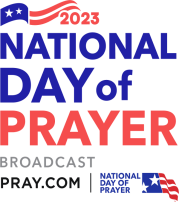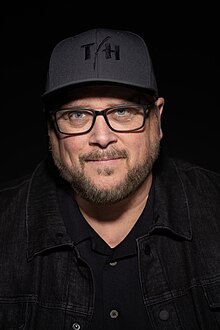Here’s the latest from the crossroads of faith, media & culture: 05/08/23

Never for a moment quail before your antagonists. Your fearlessness will be to them a sure token of impending destruction, but to you it will be a sure token of your salvation—a token coming from God. – Philippians 1:28
Fearless. Known for her Keep This Quiet! series of memoirs chronicling her encounters with some of the most notable writers of the latter half of the 20th century (most notably the iconic gonzo journalist Hunter S. Thompson, self-identified”gangster poet” Milton Klonsky and Belgian wordsmith Jan Mensaert, the latter of whom she married), Margaret Harrell recalls that growing up she had few examples of strong, fearless women who insisted on being authentic in the way prescribed by St. Paul in Philippians. Yet, despite the lack of personal examples to draw on, it was instinctive to her that she needed to overcome her fear of running afoul of public opinion.
She says life has taught her that being spiritually fearless and unapologetically yourself is an essential component of identifying and nourishing the God-given gifts and purpose one is born with. She realized that to achieve that for herself she needed to cast aside crippling self-consciousness. Achieving that easier-said-than-done goal, she remembers, was greatly assisted by some of the notable men in her life. In her memoirs, Harrell illustrates how Thompson, Klonsky, and Mensaert particularly exhibited the sort of authenticity that was vital to helping her learn how to express her true self.
JWK: You’re latest book is called The Hell’s Angels Letters and is a full-color coffee table book that follows up on your Keep This Quiet! memoir series about your relationships with such notable men as Gonzo journalist Hunter S. Thompson and poet/essayist Milton Klonsky. Tell me about your experiences with them, what those experiences taught you and what you hope to pass on to your readers?
Margaret Harrell: As a young woman in my twenties, newly in New York City, I was extremely fortunate to meet such stimulating figures. As Marion Magid, managing editor of Commentary magazine, put it to me, “There was a time when New York City was known for its talkers. Milton Klonsky was one of them.” But this didn’t mean idle talk. It was whip-sharp, digested, like capsules of mental vitamins or wisdom vitamins to mull over and be taken aback by.
In fact, I was so impressed that I modeled my protagonist for my first book on him and took down many of his pearls of one-liners. A New York City play wrongly presented him later, after he had died and couldn’t defend himself, as subservient to the poet Delmore Schwartz. But the playwright was only speculating and projecting. In fact, he was a model of answering to yourself. By that, I mean getting answers internally and externally but weighing them completely independently. So I got a firsthand seat to independent, wide-ranging thoughts on things that mattered.
The Gonzo Journalism creator Hunter S. Thompson was independent as well. He had some lifestyle choices that were questionable or even misguided, but that didn’t change the fact that he was deeply loyal to friends, that he was fearless in following his own star.
JWK: Tell me about what you learned from your marriage to the poet Jan Mensaert?
MH: From my marriage I got a few shocks. One was that I expected Jan Mensaert to include me as a “sidekick” in his imaginative approach to life. On the contrary, he expected me to be the conservative, reliable center while he roamed the edges of imagination and creativity. Besides learning not to allow him or anyone else to think for me or choose an identity for me—and put that into practice—I also learned it’s not my responsibility to “change” that person if that person isn’t ready. Each of us needs to find our pathway to our own answers. I could not, in the end, be a crutch for him. No matter the consequences, I had to leave and let him discover his own sources of strength. All of us have that God-given opportunity. But I came into the situation thinking I had to “save” him because he was so gifted. I did not. I could only sow my own seeds if the choice became whom to choose: himself or me.
JWK: In Initiations, your third entry in the Keep This Quiet! series you cover your time at the C. G. Jung Institute Zurich in the eighties where you involved yourself with the debate between physicist Wolfgang Pauli and psychiatrist Carl Jung about what’s referred to a “unified psychophysical realm.” Can you explain that a bit?
MH: Wolfgang Pauli discovered his internal feminine energy, his “anima,” as Carl Jung put it, in dreams; he was very curious to explore that side of himself, his shadow energy, his connection to the personal and historical “feminine.” He realized that that side of himself was underdeveloped and led him, a Nobel Prize scientist, whose “thinking” was imminently developed, to marry a cabaret dancer but stay married (unhappily) less than a year. It also led him to have “inferior” development in feeling. This combination often goes together. But after going to Jung with these issues, he worked with Jung in developing together the concept of synchronicity, or “meaningful coincidence,” and also they both felt psyche (Jung’s field) emerged out of the same field as physics (Pauli’s field, that there was, somewhere, a common Source. To get such a concept as synchronicity, you would have to believe that coincidences came into time out of some underlying unity that allowed events to time themselves with some relationship to “meaning”; thus, “meaningful coincidences.”
JWK: From all of this, what are your thoughts on God and faith?
MH: As Einstein himself thought, even as a child, there is something mysterious about life beyond what the adult world is telling us. Of course, he never wavered in this. I became a person of deep faith, not just by staying in the Christian church I grew up in but by having deep experiences of a personal nature that led irrefutably into the mysteries far beyond simple, straightforward explanations of reality. No, obviously, each of us has access to individual unique experiences if we dare to follow our inner guidance. I have learned that there is nothing rubber stamped about life. We stamp it with our choices and authorities and, inside that, faith is always available to us, bringing us, when we most need it, life-and-death determining support. Buoyed by it, we can have optimistic feelings and a joyful outlook if we just look there instead of holding on to what no longer is.
JWK: Why are the concepts of courage and being present in your own life so important to you?
MH: Life has surprised me time and again. Sometimes the surprise is welcome, delightful. Sometimes it’s a challenge. But where it leads me, through surprise, is somewhere I’ve never been before. Somewhere I didn’t know existed. Somewhere I can investigate or try to cast aside, thus falling back into the mass consciousness that didn’t have my experience, so they don’t factor it in. It’s up to me to factor my experiences into my understanding of reality. I strongly believe our life experiences hold out opportunities time and again to courageously discover our gifts and opportunities for creativity, joy, and service. Our opportunities to walk closely with our deepest self and what that part of us knows that we are only learning. But it means being courageous.
JWK: Anything you’d like to add as we wrap up?
MH: I would like to emphasize how much life repays us, what a high salary we get, if we walk in joy and faith, if we believe in something greater than ourselves; for otherwise, what on Earth is the point of it all? I have been rewarded so often and had such memorable experiences, once I decided to “choose myself,” meaning the guidance of my soul, of my faith, and it didn’t mean discounting common sense and logic. It just meant putting truth high up in my top values, along with an underlying faith that I was being looked out for, that I had to do my part and, if I did, the spiritual world would certainly do its part. No doubt about it, ever. I would serve, but strangely, I was served with beautiful opportunities time and again. The more I learned, the more chances I got to exercise those new learnings and offer them up in ways I would never have thought might come to me. So my consciousness grew, and my faith with it.
John W. Kennedy is a writer, producer and media development consultant specializing in television and movie projects that uphold positive timeless values, including trust in God.
Encourage one another and build each other up – 1 Thessalonians 5:11


